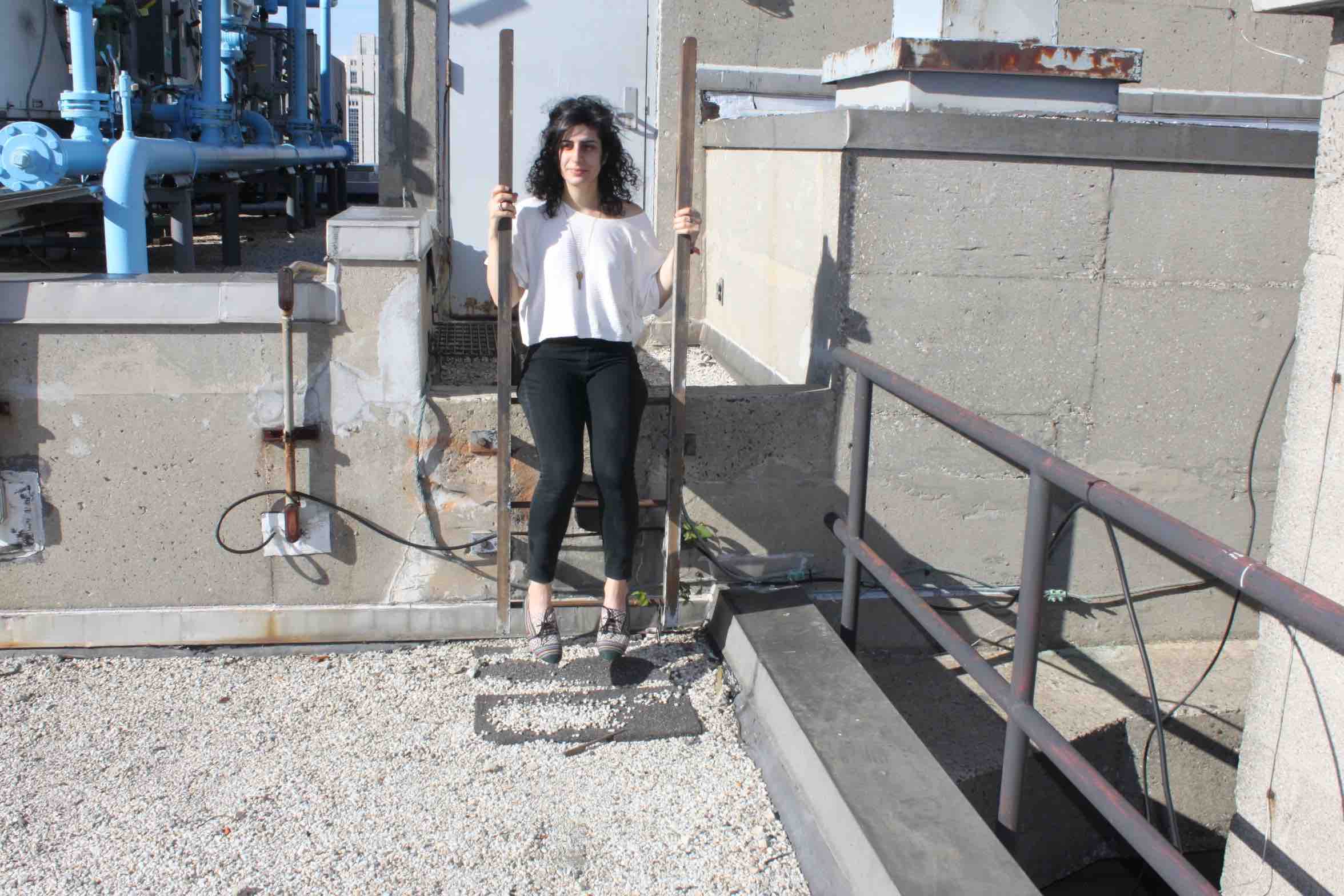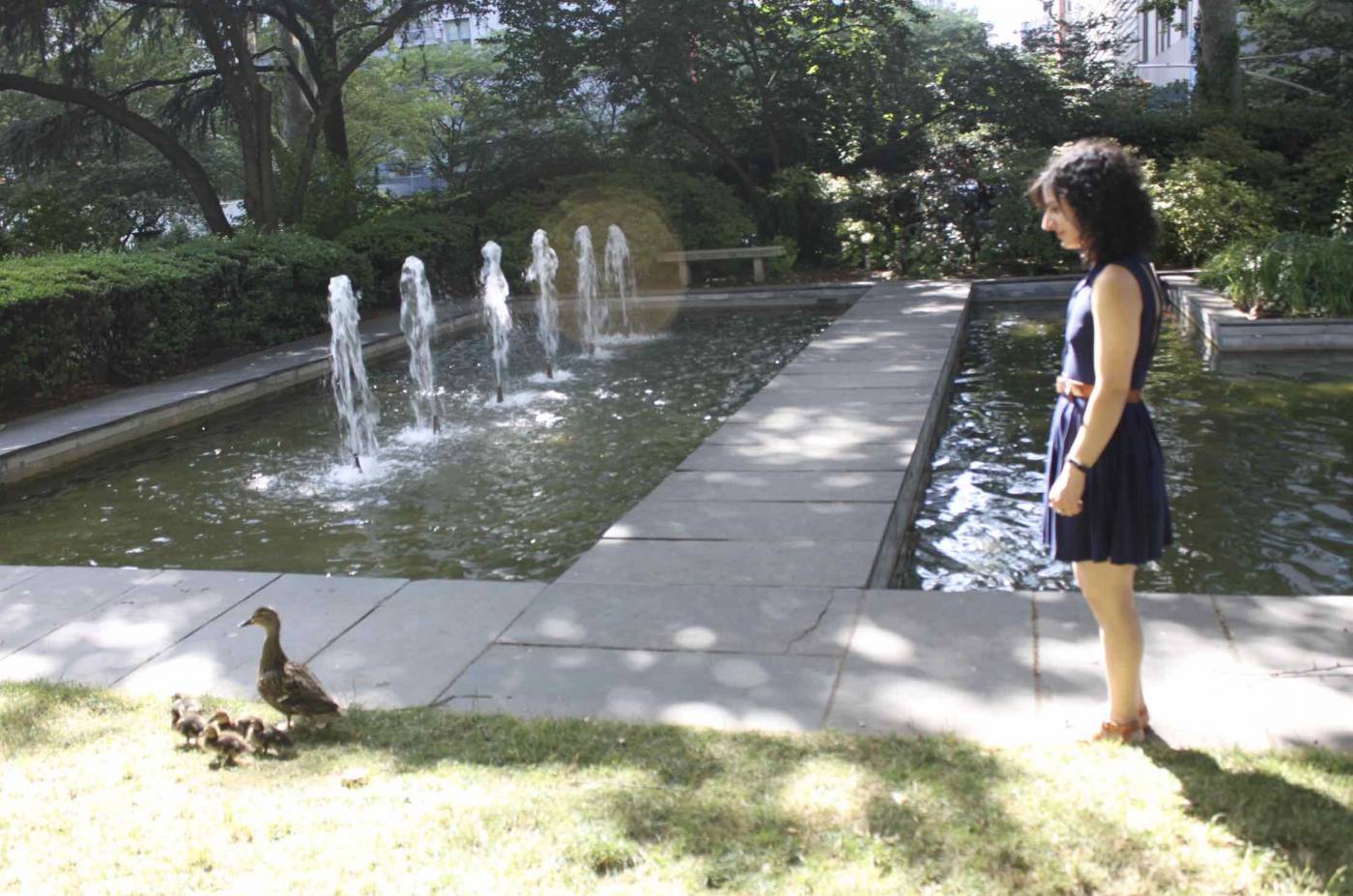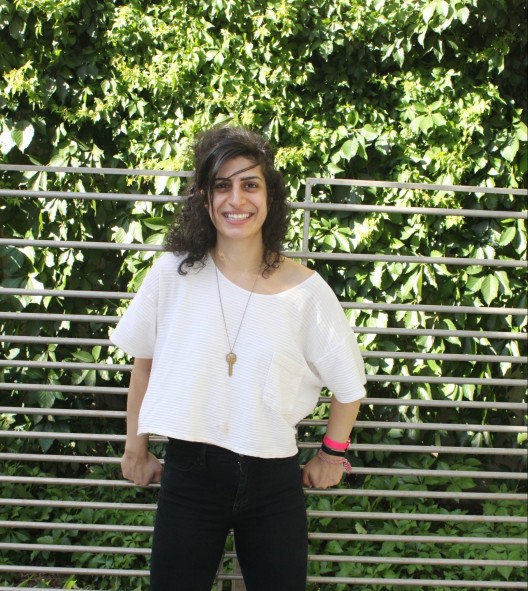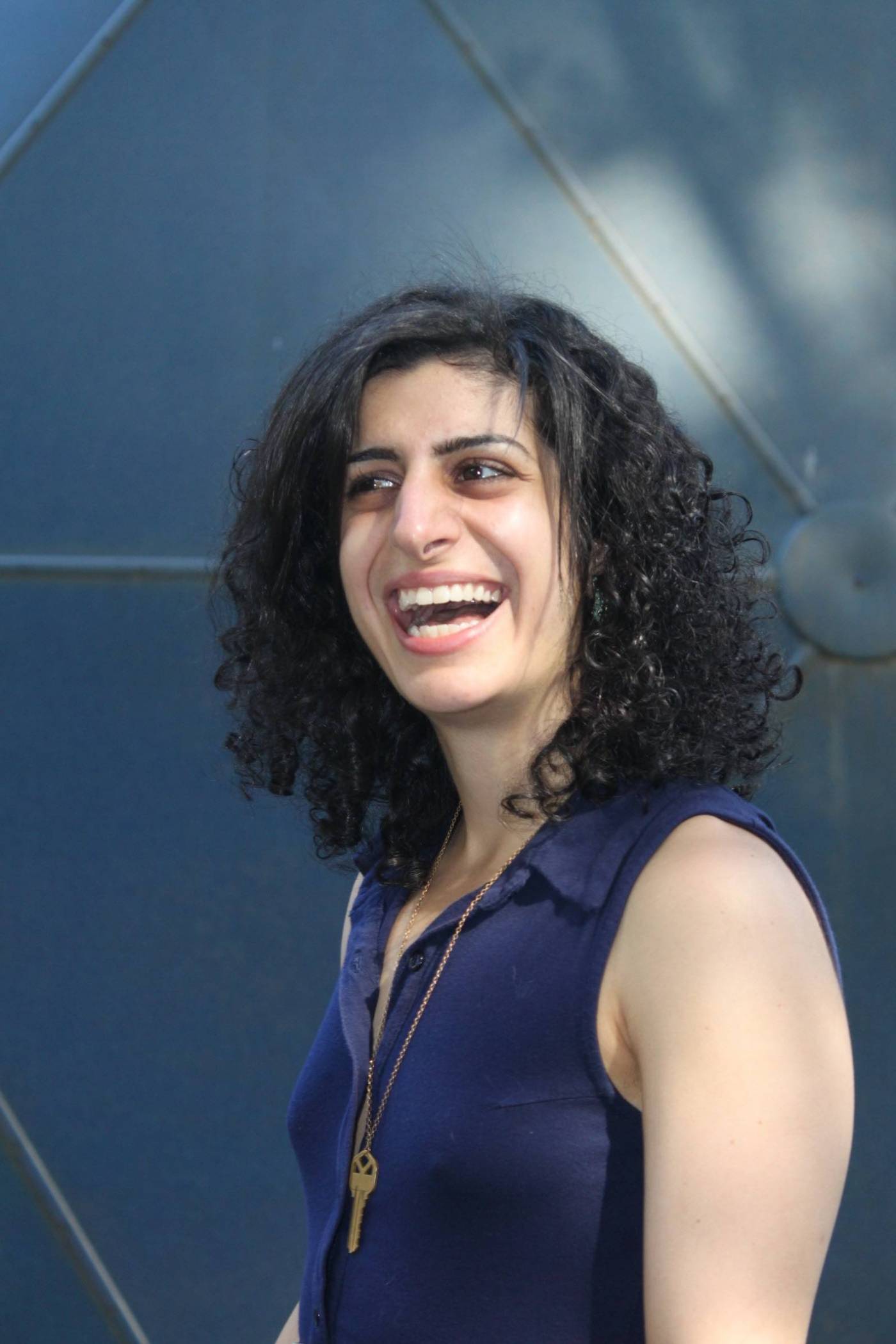Maryam Zaringhalam
In her free time, Maryam enjoys writing and is a self-proclaimed longform podcast addict, exercise fiend, and cat mama.

Maryam Zaringhalam, Ph.D., is a AAAS Science Policy Fellow at the National Institutes of Health and former graduate student in the Laboratory of Lymphocyte Biology at the Rockefeller University. Maryam is the creator of Artlab, a series that unites scientists with artists, and co-founder of Science Soapbox, a podcast that explores the relationships between science and policy.
Maryam grew up in a suburban New Jersey town, and had an interest in science from an early age due to her passion for— and interest in— the biological processes occurring within and around her. Maryam came to New York City to pursue her undergraduate degree at New York University and embrace the unique and diversity culture of the city.

Can you think of a specific time when you found science or pursuing science challenging?
“All the time. Something they don’t teach you in school is that a lot of time in the lab is spent failing. There’s a lot of troubleshooting, silly mistake making, and head scratching in our day-to-day lives. But the small victories definitely make up for all the failures because you’ve done something that should be impossible: come one teeny tiny baby step closer to understanding the way the world around us works. It’s almost crazy that our experiments and hypotheses pan out as often as they do! Science demands optimism, but it’s not always easy to be optimistic.”
If you could give one piece of advice to young scientists or students, what would it be?
“Science isn’t what you read in textbooks. It’s about hunting down the gaps in our knowledge — the things that will wind up in textbooks 10, 20, 30 years into the future. That takes creativity and not memorization, so don’t be discouraged if you can’t remember everything you read in class.”
Scientists are humans who have their own set of biases and blind spots

Imagination is essential when you’re constantly trying to come up with hypotheses and explanations for the weird, unexpected things we see in the lab
If you hadn’t pursued science, what would you have done instead?
“I always wanted to do science, but I’m very envious of investigative journalists and documentary makers. They can take really deep dives into a particular question and make something really gripping and immediate and compelling out of it. I suppose they’re a lot like scientists in that way — just without the jargon!”
What is the funniest/strangest thing you have seen in NYC?
“I was coming home from one of Prospect Park’s summer concerts last year and saw a man bathing on the subway platform. The most curious part of the scene, though, was how he got a bucket filled with water down to the platform.”
If you were a lab animal/model organism, which would you be and why?
“I’d be a bacteriophage, a virus that “eats” bacteria. They were discovered around 1915 and are super simple bugs made up of a protein coat that encapsulates its genome. But even though we’ve been studying them for over a century, we still don’t know a whole heck of a lot about their biology and diversity. So I think they’re a great reminder that scientists should always stay humble.”

